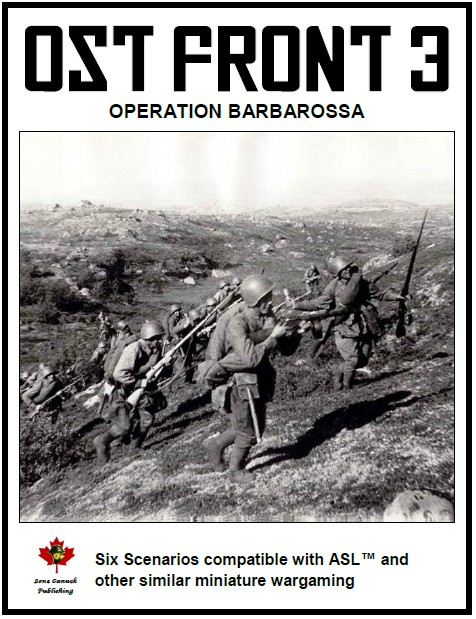

Unternehmen Barbarossa (Operation Barbarossa), the code name for Germany's invasion of the Soviet Union during the Second World War. The attack started at 0315 hours, Sunday, 22 June 1941, with Germany and her allies crossing the 3,000 kilometre Soviet Union border with 3.5 million soldiers, 3,580 tanks, 7,184 artillery guns, 1,830 aircraft, and 750,000 horses.
After a decade of Stalin's purges, the Soviet Union was unprepared for the onslaught that came in June. Stalin refused to believe the reports of a mounting invasion being prepared by the Germans, and so his armies and air force on the frontier were caught by surprise.
As in their earlier victories in France and the Low Countries the previous year, the Luftwaffe quickly gained air superiority, and helped panzer and motorized infantry spearheads punch holes through the Soviet front line. Barbarossa had three primary objectives – the Baltic states and Leningrad in the north, Moscow in the centre, and the economic resources of the Ukraine and southern Russia in the south.
OstFront 3, is the third scenario pack focused on the war on the Eastern Front, during the Germans' launch of Operation Barbarossa. OstFront 3 features a unique variable Order of Battle with attachments based on historical availability and designed with replayablility in mind.
Base Force + Variable Attachment = Scenario Order of Battle
OF 13 Clash of Arms, 22 June 1941, West of Korbyn, Russia; Operation Barbarossa opened at 0315 hours and by midday, the 2nd Panzer Group of Generaloberst Heinz Guderian had work their way around the fortress of Brest-Litovsk and into the open country west of Korbyn. Unaware of what truly unfolding, General-Colonel Pavlov commander of the Soviet Western Front issued orders for a counterattack.
OF 14 Decision at Dubno, 27 June 1941, Dubno, Russia; By late on 26 June, the Soviet 34th Tank Division was still attacking north after driving through the supply lines of the German 11th Panzer Division. The following morning the Soviets turned northeast and advanced on Dubno, with its capture, the German 11th and 16th Panzer Divisions were cut off.
OF 15 Stop that Train, 12 July 1941, Demidov, Russia; The opening phases of the Operation Barbarossa met with spectacular gains as the surprised Soviets were unable to offer any organized resistance. After three weeks of fighting, the Germans had reached the Dvina and the Dnieper Rivers; after a brief rest, the Germans planned for a resumption of the offensive. Hurriedly STAVKA, released reserves, rushing them westwards by train.
OF 16 Crossing the Duna, 6 July 1941, West of Vitebsk, Russia; By early July German Army Group Centre was poised to attempt a second large encirclement battle, this time around Smolensk. Resistance was stiffening, but Soviets were critically short on armour to support their forward units. Meanwhile the Germans were having problems with mobility and supply due to the lack of good roads.
OF 17 Murai State Farm, 24 June 1941, Murai State Farm, near Rossine Russia; For the Drive for Leningrad, the 1st Panzer Division forced deep penetrations into the Soviet lines. However, the 6th Panzer Division was tied up in bitter fighting with the Soviet 2nd Tank Division which has T34, KV1, and KV2 tanks in its ranks.
OF 18 Red Crossroads, 6 July 1941, Senno Russia; Lead elements of the 7th Motorcycle Battalion of the 7th Panzer Division raced ahead and by 5 July had reached the vital crossroad town of Senno essential to it supply line. The Soviet launched a counterattack with 500 tanks of the 7th Mechanized Corps, while mainly equipped with BT tanks the corps has 40 heavier T34 and KV1 tanks.
Map Boards Required: 4, 6, 18, 19, 43, 57, 66, & q, t, v, x